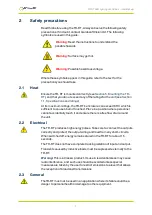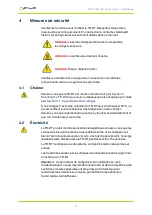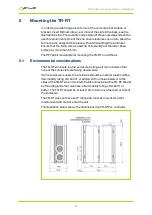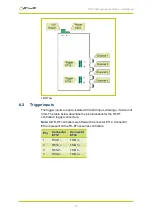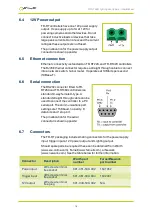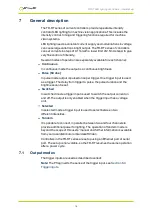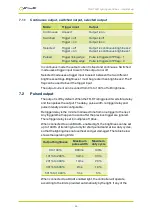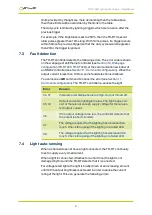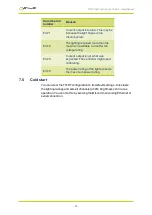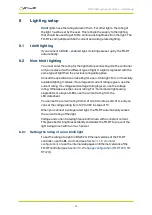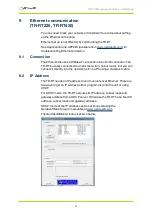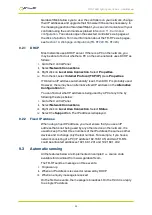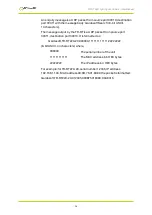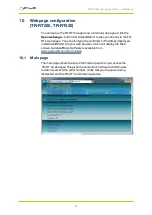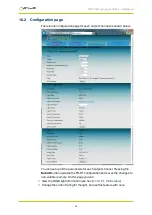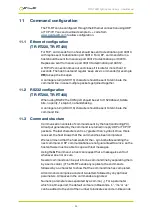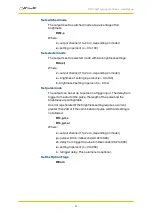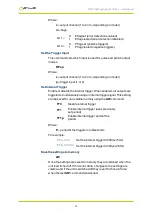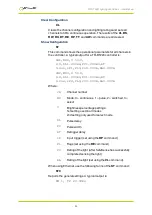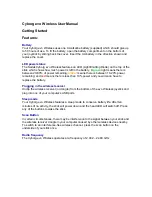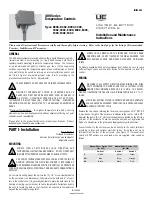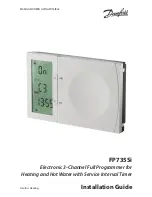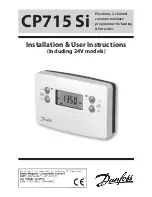
TR-RT LED lighting controllers - User Manual
7.1.1
Continuous output, switched output, selected output
Mode
Trigger input
Output
Continuous
Unused
Output is on
Switched
Trigger = off
Trigger = on
Output is off
Output is on
Selected
Trigger = off
Trigger = on
Output is continuous brightness 2
Output is continuous brightness 1
Pulsed
Trigger rising edge
Trigger falling edge
Pulse is triggered if P flag = 1
Pulse is triggered if P flag = 0
In continuous mode the output current is fixed and continuous. Switched
mode uses a trigger input to switch the output on or off.
Selected mode uses a trigger input to select between the two different
brightness settings. Brightness 1 must be greater than brightness 2. The P
flag can be used to invert the trigger input.
The output current can be varied from 0% to 100% of full brightness.
7.2
Pulsed output
The output is off by default. When the TR-RT is triggered it waits for a delay
and then pulses the output. The delay, pulse width, retrigger delay and
pulse intensity are all configurable.
Retrigger delay is the minimum allowed time from one trigger to the next.
Any triggers that happen too soon after the previous trigger are ignored.
The retrigger delay is set in multiples of 100us.
When connected to a non
triniti
– enabled light, the brightness can be set
up to 1000% of its rating, but only for short periods and at low duty cycles,
so that the lighting does not overheat and get damaged. The table below
shows the operating limits:
Output brightness
Maximum
pulse width
Maximum
duty cycle
0 to 100%
999ms
100%
101% to 200%
30ms
30%
201% to 300%
10ms
20%
301% to 500%
2ms
10%
501% to 1000%
1ms
5%
When connected to a
triniti
enabled light, the controller will operate
according to the limits provided automatically by the light. If any of the
—
20
—


